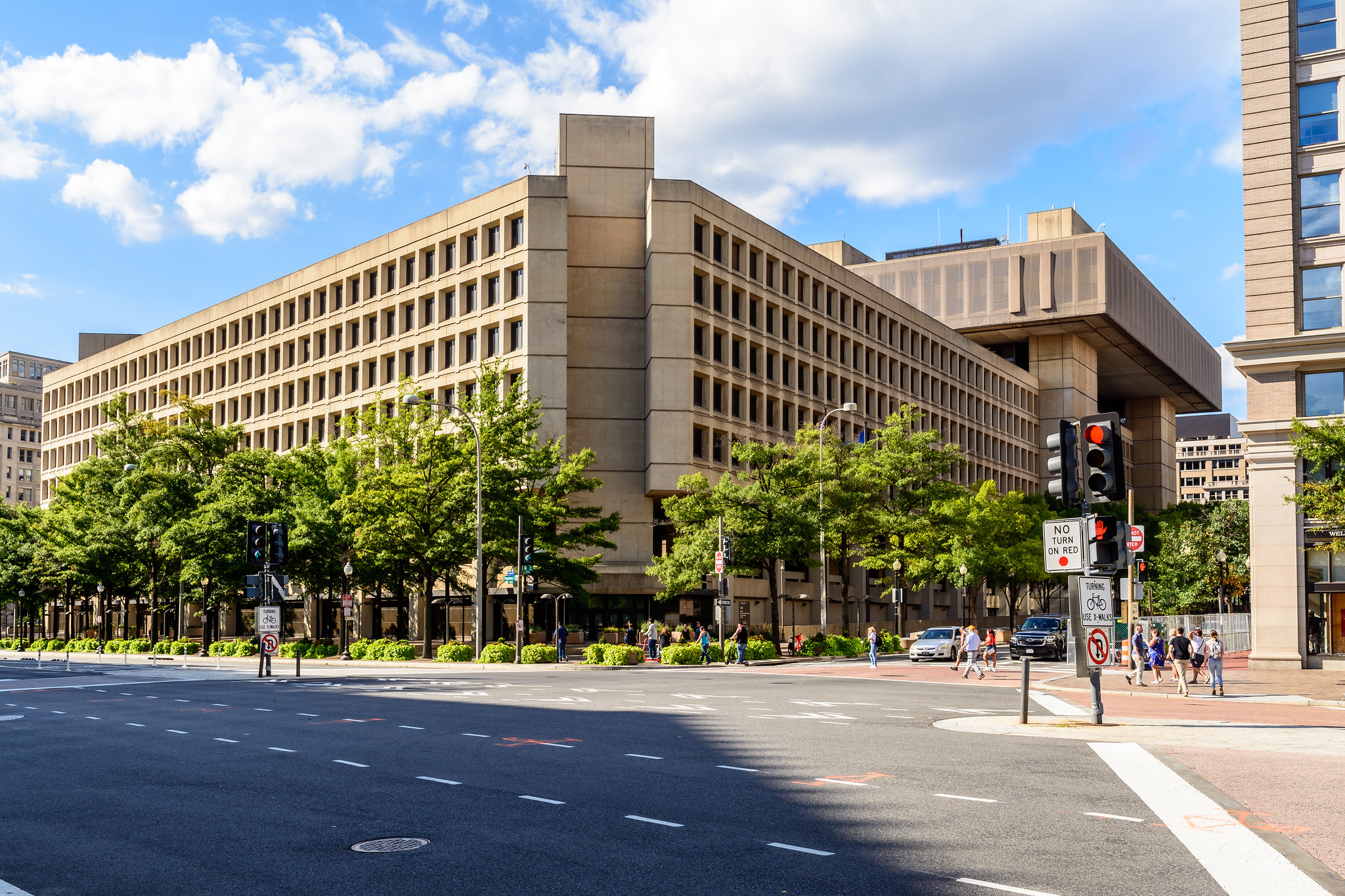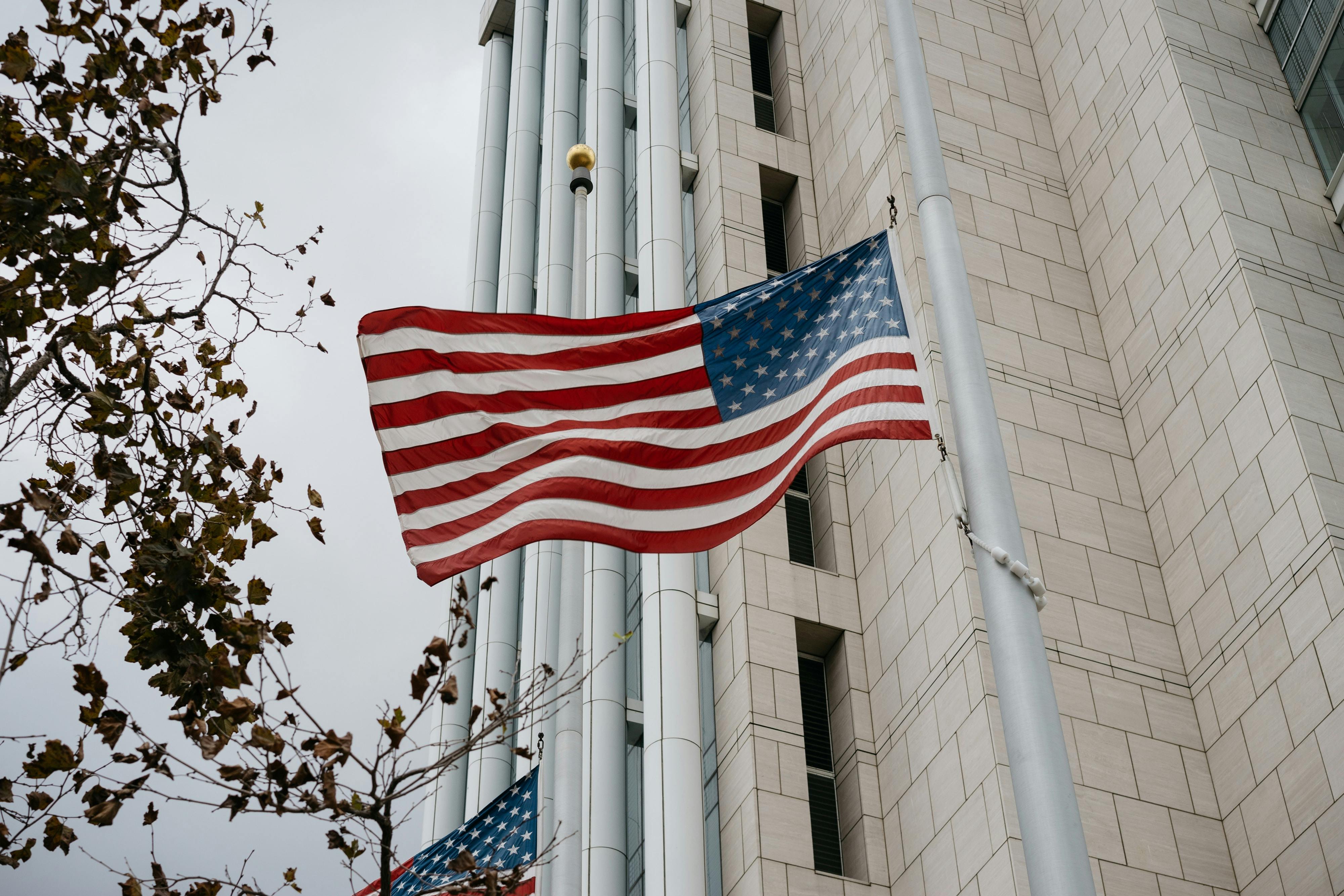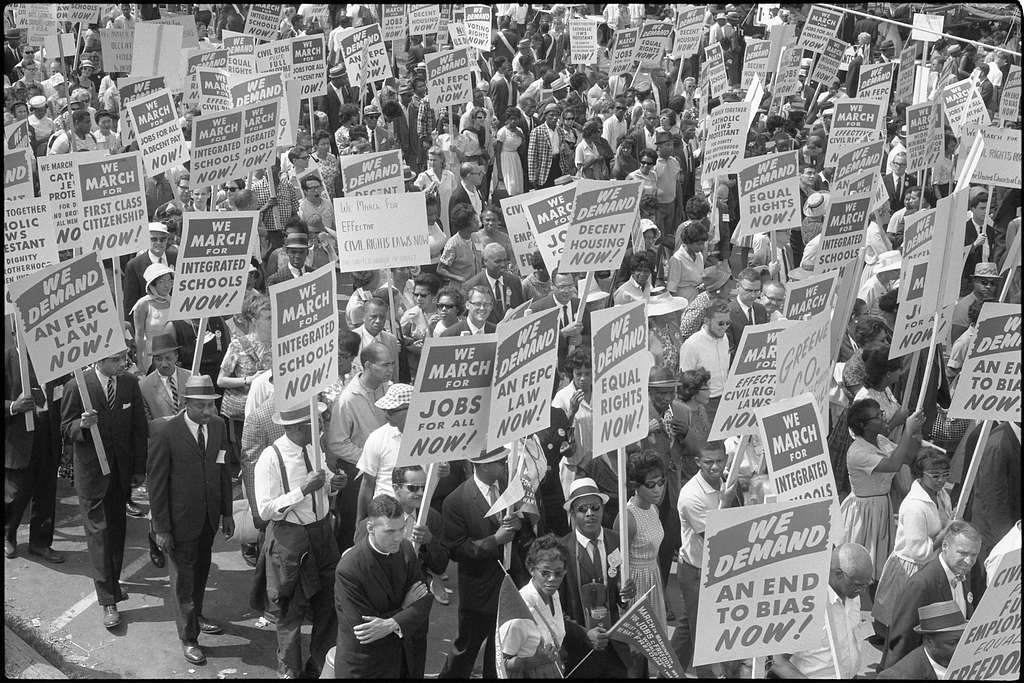The FBI is Getting a New Headquarters. Will Americans Get a New FBI?

The battle over the FBI’s long-delayed new headquarters building in the D.C. suburbs is intense—and the site hasn’t even been chosen. The General Services Administration has announced plans to award the pricey megaproject to either Springfield, Virginia, or Prince George’s County, Maryland. Political leaders from both states hope to win the thousands of well-paid jobs that the new campus would bring. Meanwhile, congressional Republicans frustrated with the FBI have threatened to revoke funding for the project altogether.
But the stakes of the FBI’s move transcend who will claim this juicy slice of the federal pie. The new headquarters building offers a generational chance to reset the culture of a troubled but still powerful agency. It also creates a risk: Once the FBI decamps to the suburbs, its workforce will be even more distant from the people’s elected representatives in Congress, to say nothing of the American people themselves.
The Bureau and Public Trust
The headquarters decision comes amid a turbulent period for the FBI. Public controversy is not new to the bureau. But fights over its power have grown more frequent and intense since 2016, when election-season cameos by FBI Director James Comey infuriated partisans of all stripes. Most recently, a declassified court opinion revealed that the bureau had improperly searched a key foreign intelligence database for information about people involved in Black Lives Matter and Jan. 6. In between, the FBI has been repeatedly dinged by courts and inspectors general for missteps related to surveillance and intelligence programs.
Why does this keep happening? Part of the problem is sheer complexity. The FBI has dozens of field offices, tens of thousands of employees, fragmented and aging computer systems, and parallel crime fighting and intelligence responsibilities. Managing these various responsibilities is no easy task.
The bureau’s mission is also unavoidably fraught. Actions meant to protect the nation from threats can affect Americans’ rights to free speech, religion, assembly, and association. Vociferous, even vicious criticism of the government or other social groups is protected by the First Amendment; acting violently on those beliefs is not. The membrane separating belief from action can be thin, and we expect the FBI to prevent potential terrorists from crossing it. No agency with that task could avoid controversy altogether.
The crux of the problem, however, has been the manner in which the FBI deals with those controversies. Throughout its long history, the bureau has warily managed its engagement with the public it serves and protects. Transparency about how the bureau makes decisions and sets priorities has been the exception rather than the rule, and it has rarely been voluntary.
Hoover’s Ghost
Much of this traces back to longtime FBI Director J. Edgar Hoover, who ruled over the bureau for almost 50 years, from 1924 until his death in 1972. One of the towering figures of the 20th century, Hoover revolutionized law enforcement, keeping pace with such advances as the telephone, automobile, and commercial aviation. He also made the FBI the world leader in innovative techniques of detection, from fingerprinting to the analysis of explosives. All along, he curated the FBI’s public image with the cunning and flair of a Hollywood publicist.
Yet Hoover was also a collector of dark secrets, which he used ruthlessly to protect the bureau’s power and his own. Most notoriously, Hoover kept his own “official and confidential files,” which he withheld from the FBI’s ordinary recordkeeping system. In those files, Hoover hoarded “dirt” on presidents, members of Congress, activists (including Martin Luther King Jr.), and other public figures. Hoover’s FBI was a “secretive and insular” institution that became, in the words of Beverly Gage’s Pulitzer-winning biography “G-Man,” a “personal fiefdom unrivaled in U.S. history.”
Perhaps surprisingly, the FBI’s current headquarters building in Washington still bears Hoover’s name. On one level, that seems inappropriate. Given Hoover’s many misdeeds, the nation might “be well served if his name were removed from the bureau’s building,” as the late Judge Laurence Silberman argued. But on another level, it makes sense: Hoover’s influence lingers.
A Chance at an Exorcism
The new headquarters is a chance at an exorcism. Congress has already appropriated the money, but it will have opportunities this year to attach conditions related to the headquarters to must-pass bills. We propose here several ways for Congress to ensure that the new headquarters serves all Americans’ interest in a more transparent, trusted FBI.
First, Congress can ensure that the unspoken, symbolic messages that the new building conveys are the right ones. Symbolism matters. Official buildings all over the world speak to the history and aspirations of the institutions that inhabit them and the peoples they serve. American leaders since the founding have known that and built accordingly. The neoclassical architecture and geometric layout of ceremonial Washington embody in stone the creed of a representative republic inspired by classical principles and steeped in enlightenment rationality.
If today’s FBI headquarters, the brutalist Hoover Building, resembles any recognizable form of architecture, it is a fortress. To create a new culture, the new headquarters must be different.
To achieve this, the new building could emulate Norman Foster’s iconic cupola for Berlin’s Reichstag building, the reopening of which inaugurated the resumption of democratic government in Germany’s traditional capital in 1999. Foster’s design signaled a departure from the building’s grim past and embodied the transparency expected of those who wield power on the people’s behalf. The new FBI headquarters cannot be fully open, of course—the bureau’s sensitive work precludes that—but it must convey a sense of openness. The right design can influence the ethos of those who work there and the perceptions of those who see it from outside.
As can a name. Hoover’s continues to adorn the old FBI headquarters, but it should not follow the bureau to Maryland or Virginia. The new building is a rare chance to shed Hoover’s baggage without a divisive fight over renaming and the legacy of the FBI’s iconic founder. The new headquarters need not bear anyone’s name; if it does, however, Edward Levi would be a good choice. As attorney general, Levi in 1976 issued guidelines for FBI investigations that sought to protect civil liberties and dissent after decades of Hoover-era abuse. Levi’s name would be a healthy reminder of the principles of professionalism, respect for civil liberties, and political neutrality that allowed the FBI to regain public trust after Hoover and Watergate.
History and Memory at the FBI
Architecture and names matter. But Congress should also make a deeper investment in opening the bureau to the public and reckoning with its history and role in American society.
To that end, the new campus could feature a publicly accessible museum that deals forthrightly with civil rights abuses and political spying under J. Edgar Hoover, while also acknowledging his historic contributions to American law enforcement. The museum should also serve as a conference center and research library. Unlike the in-house museums at other agencies, it should be overseen by a congressionally appointed board and run by a professional historian accountable to the board, rather than by the FBI itself.
There is an existing model for such an institution: the 13 presidential libraries that honor presidents from Herbert Hoover to George W. Bush. Administered by the federal government’s National Archives and Records Administration, the libraries place a premium on transparency and professional detachment. Researchers can dig into vast archival collections, limited only by protections for classified information. Meanwhile, museum-goers can tour exhibits about the life and times of each president and students can take part in educational programs. To be sure, the libraries honor each president and the presidency more generally. But they strive for a fair vision of history consistent with scholarly expertise.
Like a presidential library, a new FBI museum and library could feature facilities for public events on issues of importance to the American public, such as law enforcement, civil liberties, and constitutional law. The LBJ Presidential Library in Austin, Texas, to cite just one model, plays such a role by hosting speakers, conferences, and workshops for a wide array of audiences interested in American politics and policymaking. In recent months, the library has hosted speakers ranging from Democratic House Speaker Nancy Pelosi to Republican political strategist Karl Rove. In January it gathered academic experts and government officials, including Director of National Intelligence Avril Haines, for two days of discussions about the nation’s policies on declassification of sensitive records.
Changing Culture, Building Trust
Why should Congress bother with designs, names, museums, and conferences—with mere symbolism—when there are present-day FBI missteps to address? Because symbols create culture. As with the grand buildings of official Washington, symbols help establish the character of powerful institutions—their image of themselves and their understanding of how they stand in relation to the citizenry. That culture, in turn, shapes their actions.
These changes would signal that the bureau belongs to, and is part of, the American people, not an island unto itself. They would provide a cautionary reminder of the FBI’s history and the bureau’s inherently fraught role in our society. And they would help the FBI’s leaders hear the voices of those it serves and protects.
A more transparent, open FBI would also benefit the bureau itself. Isolation, opacity, and poor communication have imperiled the bureau’s powers. An FBI that is more transparent and closer to the people will stand on a stronger foundation in public consent. In the new headquarters, Congress has a fleeting chance to begin the bureau’s story anew.






